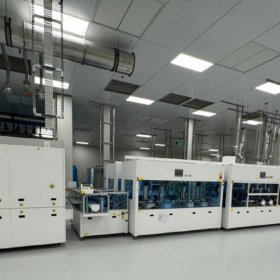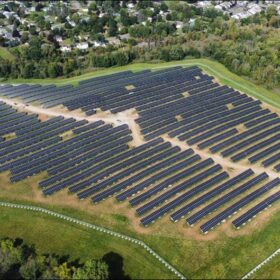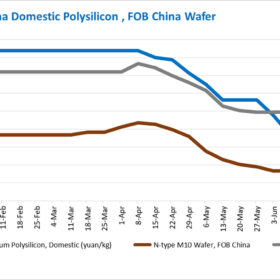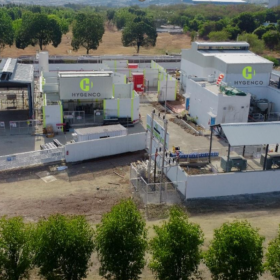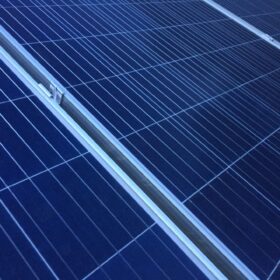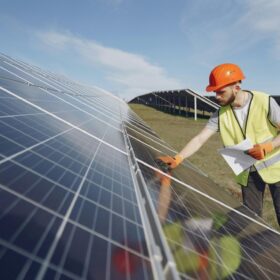German battery storage hits 22.1 GWh in H1
Germany’s battery storage capacity is rapidly expanding, nearing 2 million installations by the end of the first half of 2025.
Reliance to begin solar cell production in Q3
Reliance Industries Ltd (RIL) is set to commission its solar cell manufacturing facility in the next quarter, achieving a significant milestone in its goal of building a fully integrated solar manufacturing value chain in Jamnagar, Gujarat.
U.S. solar projects face development crunch while Canada says “Build, baby, build”
Solar developers prioritize advanced-stage projects in the U.S. due to tightened tax credit deadlines, while projects in Canada are “full speed forward.”
China’s upstream solar market signals strong price gains amid government intervention
In a new weekly update for pv magazine, OPIS, a Dow Jones company, provides a quick look at the main price trends in the global PV industry.
India needs to invest $1.5 trillion by 2030 for climate action at scale: Deloitte report
The report highlights significant investment opportunities across renewable energy (solar, wind, hydro), bio-energy, energy storage solutions, green hydrogen and its derivatives, sustainable transport infrastructure, digital systems and platforms for climate action, sustainable agriculture, and circular economy and waste management.
New solar trade cases focus on Asian countries
A US solar manufacturing group has filed trade petitions targeting cell and module imports from Indonesia, India and Laos, seeking antidumping and countervailing duties on largely Chinese-produced products. The action could trigger new AD/CVD investigations by the US Department of Commerce.
The Hydrogen Stream: Hygenco commissions green hydrogen plant to decarbonize Sterlite Technologies’ optic fibre production
Hygenco Green Energies has commissioned Maharashtra’s first green hydrogen and green oxygen production facility in Chhatrapati Sambhaji Nagar. This project will supply green hydrogen and oxygen to optic fibre manufacturer Sterlite Technologies Ltd.’s glass preform facility, supporting its goal to achieve Net Zero by 2030.
Distributed solar poised to shape the next decade of India’s energy transition through residential, C&I rooftops, and hybrid microgrids
India has set an ambitious target of 280 GW of solar capacity by 2030, and of this, at least 40-45 GW is expected to come from distributed solar — a conservative estimate, considering the pace at which the ecosystem is maturing.
Oriana Power enters MoU to explore and develop renewable energy projects in Canada’s Alberta province
Oriana Power has entered a Memorandum of Understanding with Invest Alberta Corp. (IAC), to explore and develop renewable energy projects in Canada’s Alberta province.
One Big Beautiful Bill is anti-solar: US industry reacts
The budget bill and a Trump executive order are expected to have a damaging effect to the solar industry, but strong fundamentals like increased demand and lowered component costs are expected to drive installations forward.

